YOU ARE BOUVÉ

The Doctor of Pharmacy program at Northeastern University, is the only program in the US to offer cooperative education (co-op) experiences that provide our students with unmatched opportunities for innovative and interactive learning.
Gain experience at one or more of the 120+ affiliated hospitals, clinics, community pharmacies, private companies, and government agencies.
The placements are paid, full-time positions that provide you with the professional experience and contacts you will need to launch your career, while you’re still learning as a student.
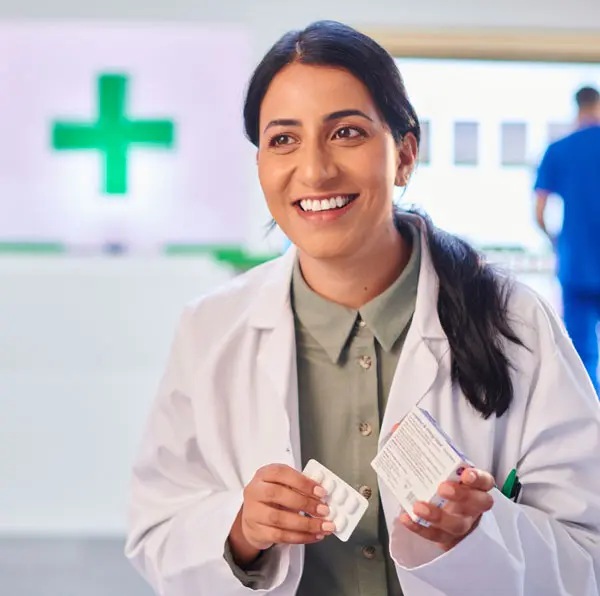
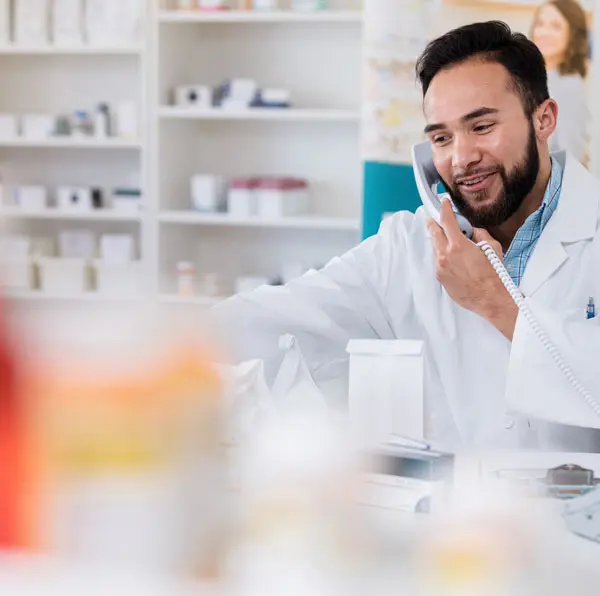
Most of the job titles an individual will be qualified for after earning their PharmD degree will have the word ‘pharmacist’ in it, but in fact a PharmD degree leads to an incredibly varied field of possible careers and you can pursue either traditional or non-traditional paths.
There are more than 100 different career paths that someone might choose to go down once they earn their PharmD. Some of these can be pursued right out of the gate, while others will require additional training.
Degree types:
– Doctor of Pharmacy (PharmD)
Admissions Pathways:
– High school student early assurance
– Undergraduate transfer student
– Graduate direct-entry
Please refer to your preferred pathway for directions on how to apply.
The PharmD fully integrates campus-based learning with experiential learning, including the university’s signature cooperative education program (co-op), to provide students with the knowledge, skills, and abilities necessary to succeed in the pharmacy profession.
Our students promote and ensure the safe and effective use of drugs and provide medication therapy management services. In addition to preparing and dispensing prescribed medications, our students provide information to patients about medications and their uses; advise physicians, other prescribers, and healthcare practitioners on medication selection, dosages, interactions, and adverse effects; and monitor patient responses to drug therapy.
The goal of the Doctor of Pharmacy curriculum is to prepare graduates for the present and future practice of pharmacy and the advancement of the profession by providing a strong foundation in science and practice that stresses integration and application. Graduates will be prepared to deliver patient-centered care, provide safe and effective medication therapy management, work as members of interprofessional teams, and make significant contributions to contemporary health care environments.
Upon completion of the Doctor of Pharmacy program at Northeastern University, a graduate will have achieved specifically defined curricular outcomes. To be eligible for a Doctor of Pharmacy degree, a student must successfully complete all courses in the curriculum including the IPPEs (co-op) and APPEs; meet the academic progression standards of the program; meet the technical standards of the program; and satisfy all other requirements as stated.
The pharmacy program is fully accredited by the Accreditation Council for Pharmacy Education and adheres to the standards established by ACPE.
Pharmacy graduates must meet specific requirements to qualify for professional licensure in the state where they plan to practice as a registered pharmacist. These requirements include:
The internship is a period of practical experience conducted under the supervision of a registered pharmacist. Massachusetts requires 1,500 internship hours, all of which are satisfied through completion of IPPEs (co-op) and APPEs.

Free Career Guide:

Explore the breadth of possible traditional and non-traditional career paths you can take with a doctorate in pharmacy.
Sample curriculum, subject to change.
Please view the university’s academic catalog for full course details. This course sample curriculum is from the early assurance pathway for high school students.
Students must use electives to fulfill the professional elective requirement, the NUpath Interpreting Culture, Understanding Societies and Institutions, and Exploring Creative Expression and Innovation attributes (if not already fulfilled through prior coursework).
Complete at least 2 semester hours during the professional phase of the program from the following:
Counseling Theories and Practice
Understanding Culture and Diversity
Introduction to Health Informatics and Health Information Systems
Business Application of Decision Support in Healthcare
Creation and Application of Medical Knowledge
Patient Engagement Informatics and Analytics
Interprofessional Ethics for Individual and Population Health
Alternative Medicine
Mindfulness: Theory and Practice
The (in)Visibility of (dis)Ability in Society
Human Nutrition
Advanced Nutrition in Health and Disease
Public Health Nutrition in the Community
Wellness
Leadership and Advocacy in Health Professions
Exploring Academic Careers
Cancer Chemotherapy
Research Methods in Health Systems
Principles in General Medicine
Contemporary Issues in Geriatric Pharmacy
Research
Directed Study
Pharmaceutical Industry
Ambulatory Care Pharmacy Practice in Urban Health
Self-Care and Nonprescription Medications: A Team-Based Approach
Research
Directed Study
Concepts in Pharmaceutical Science
Principles of Drug Design
Repurposing Drugs for Cancer Immunotherapies
Pharmaceutical Toxicology
The Chemistry and Biology of Drugs of Abuse
Behavioral Pharmacology and Drug Discovery
Biophysical Methods in Drug Discovery
Introduction to Global Health
Health Advocacy
Strategic Management and Leadership in Healthcare
Global Health
Evaluating Healthcare Quality
Economic Perspectives on Health Policy
Project Management in Public Health
Budget Principles in Public Health
Grant Writing in Public Health
Qualitative Methods in Health and Illness
Advanced Physical Pharmacy
Pharmacokinetics and Drug Metabolism
Advanced Drug Delivery Systems
Introduction to Communication Disorders
Communication Disorders in Movies
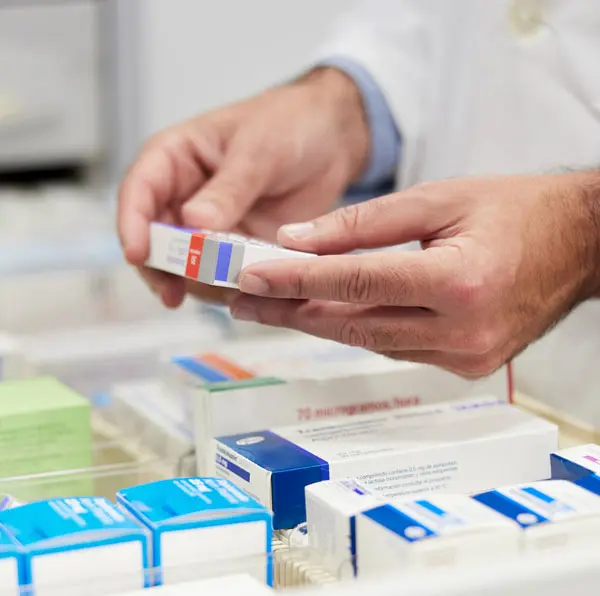

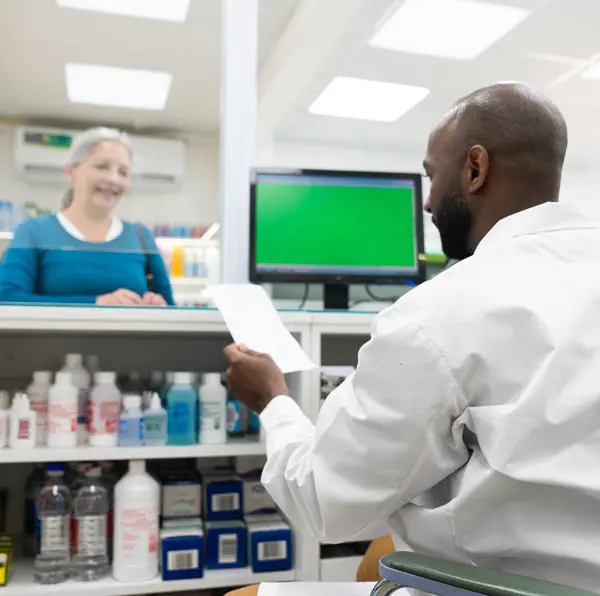
We have multiple pathways to enter our PharmD program. You’ll find the information you need to apply to our program below:
That said, please feel free to reach out to us, if you have any questions.
Talk to us.
You can apply to Northeastern University as a freshman if you are a current high school student or have already graduated but have not attended college.
To learn more about pharmacy as a profession please read:
Is Pharmacy Right For Me?
The Doctor of Pharmacy program provides a foundation of basic science and targeted liberal arts course work, a comprehensive, integrated professional course curriculum and extensive professional work experience that prepares students for work in a wide variety of pharmacy practice settings.
There is also an option to earn a accelerated Master in Public Health with your PharmD.
Year 1 and Year 2: pre-professional
P1-P4 Professional Curriculum (years 3-6)
Please see the sample curriculum above.
You will receive your bachelor’s degree in Pharmacy Studies (BS pharmacy studies) after five years.
You become a graduate student (Double Husky) in spring of your sixth year and graduate with a BS/PharmD.
The first two years are the pre-professional years (PP1 and PP2), the final four years are the professional years of the program (P1-P4).
Yes, if you are admitted into the early assurance pathway in pharmacy, you have a spot in the PharmD program.
Yes, you need to complete a PharmCAS application and complete an interview with the pharmacy admissions committee during your second year (PP2 year) as part of our accreditation process.
However, if you meet the progression requirements, you will be guaranteed a seat in the P1 year (your third year at Northeastern). Northeastern faculty and advisors work with you to stay on track.
If you are a CURRENT Northeastern undergraduate, and you wish to enter the PharmD program, you can change your major to pharmacy.
If you’re looking to transfer to our PharmD program at Northeastern, please choose from one of the two possible pathways below, that best describes your level of preparation to date:
If you have completed two or more years of undergraduate work, including the courses listed below, and have not yet earned a bachelor’s degree, you can apply to transfer directly into the first Professional Year (P1 of 4 years) of the PharmD Program.
| Prerequisites for Transfer into P1 of the PharmD Program | Semester Hours |
|---|---|
| Biology I & II (must include at least one lab component between the two courses) | 7 |
| Chemistry I & II (must include at least one lab component between the two courses) | 7 |
| Organic Chemistry I & II with labs | 8 |
| Biochemistry | 3 |
| Calculus or other high-level math | 3 |
| Human Anatomy & Physiology I & II with 1 lab | 7 |
| General Humanities | 4 |
Please apply using the PharmCAS application link, where you will also find more information about transfer requirements.
If you have fewer than two years of undergraduate coursework, or have not already taken the courses listed above, you can apply to transfer into the second pre-professional year of the Early Assurance Doctorate in Pharmacy program.
As an Early Assurance student, you will complete, at Northeastern, the remaining undergraduate, pre-professional requirements for entrance into the PharmD program, including at least twelve semester hours of science prerequisite coursework:
| Early Assurance PharmD Program Coursework | Semester Hours |
|---|---|
| General Chemistry I with Lab (required) | 4 |
| General Chemistry II with Lab (strongly recommended) | 4 |
| General Biology I with Lab (required) | 4 |
| General Biology II with Lab (strongly recommended) | 4 |
| Calculus or higher | 4 |
| Foundations of Psychology | 4 |
| College writing (equivalent to ENGW 1111) | 4 |
In addition, you must meet all other progression plan requirements before being considered for admission into the first Professional (P1) Year of the PharmD program. Please visit the academic catalog and scroll down to the heading “Program Progression” to learn more.
You will be required to submit a PharmCAS application during your second pre-professional year as part of the progression requirements. As long as you meet the progression requirements and satisfactorily pass the progression interview, you will enter the P1 year of the PharmD program. The PharmCAS application process is considered a formality in the progression process and will not jeopardize your preferred or guaranteed enrollment status.
Please apply to this pathway through our Undergraduate Admissions website, where you will find more information, as well as application materials and deadlines.
Due to the volume of applications and coursework received, we will evaluate equivalencies of coursework taken at other institutions only after a student has been admitted to the program.
If you would like to see if a course you have taken has already been evaluated for equivalency by Northeastern University, please visit our equivalency data base.
If you have earned a bachelor’s degree and will have completed all required pre-pharmacy coursework by the summer prior to Fall semester of matriculation, you may apply for admission into the first professional (P1) year of the PharmD program via the PharmCAS application. If you are interested in DIRECT-ENTRY admission, please see the application requirements and prerequisites below. For more information about the admissions requirements, please visit our PharmCAS School Page.
Deadline: June 3
Rolling admission decisions
Completed PharmCAS application
Transcripts must be submitted directly to PharmCAS. Any foreign coursework must be evaluated by World Education Services (WES) Inc. and submitted directly to PharmCAS.
Optional: PCAT Exam (Pharmacy College Admissions Test)
Scores may be submitted directly to PharmCAS using PCAT score code 104
Bachelors degree (in any field/major) must be completed no later than summer prior to matriculation
Two letters of recommendation
Must be submitted directly into PharmCAS. Recommended sources, pharmacist, supervisor
Prerequisite courses (see below)
Preferred completion by spring semester prior to matriculation, with allowance for some coursework in summer. Students may apply while coursework is in progress.
TOEFL Score (International applicants only)
Prerequisites required for Direct-Entry into first professional (P1) year of the program:
* Only grades of C (2.0) or higher are acceptable to fulfill a prerequisite course. An overall prerequisite science grade point average (GPA) of 3.0 is preferred.
| Prerequisites For Fall Admission | Semester Hours |
|---|---|
| General Chemistry I and II (1 Lab) | 7 |
| General Biology I and II (1 Lab) | 7 |
| Organic Chemistry I and II (with Labs) | 8 |
| Biochemistry | 3 |
| Calculus/Other Advanced Math | 3 |
| Arts/Humanities/Social Sciences | 4 |
| Human Physiology I and II (including anatomy) * | 7 |
| BACHELOR’S Degree (any discipline) required |
Students may apply while coursework is in progress – all prerequisites and bachelor’s degree need to be completed by end of summer term for admission in fall semester. AP credit for coursework will be considered if listed on transcript and accepted by the undergraduate institution.
Notes on Human Physiology I and II Course Sequence: A total of 7 semester hours of HUMAN-based Physiology and Anatomy are required by the program. Course designed for health professions are highly preferred. Please check with advisors/instructors at your institution to identify courses that fit these requirements. If a general anatomy or physiology course is taken, 80% of the course content must be based on human systems. Most students fulfill this course sequence by taking:
OPTION 1: Human Anatomy and Physiology I and Human Anatomy and Physiology II (at least one lab as part of sequence)
OPTION 2: Human Physiology I and Human Anatomy I (at least one lab as part of sequence)
OPTION 3: Human Physiology I and Human Physiology II (at least one lab as part of sequence)
Transcripts in languages other than English must be submitted for verification through World Education Services (WES) Inc. A course-by-course GPA and degree equivalency evaluation is required and must be submitted through PharmCAS application.
Note: Due to the volume of applications and coursework received, we will evaluate equivalencies of coursework only after a student has applied to the program. Final review occurs as part of the admission process.
Learning extends beyond the classroom at Northeastern. Providing students with opportunities for experiential education linking coursework with the real-world is central to the mission both of the University and the Bouvé College of Health Sciences.
Cooperative education (Co-op), a program unique among US schools of pharmacy, provides for up to 48 weeks of full-time practical experience, that satisfy the Introductory Pharmacy Practice Experience (IPPE) requirement of the Accreditation Council for Pharmacy Education (ACPE). The school is affiliated with many world-class practice sites in metropolitan Boston and throughout the United States providing students with access to experienced clinicians and scholars.
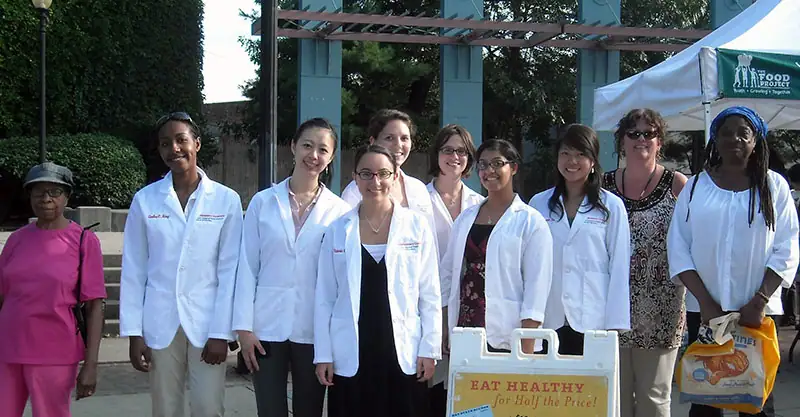
The Doctor of Pharmacy (PharmD) degree is a professional doctorate degree necessary to pursue pharmacy licensure in the United States. National Association of Boards of Pharmacy, including the Massachusetts Board of Registration in Pharmacy, require that pharmacy licensure applicants from the United States have graduated from an accredited PharmD degree program to be eligible to sit for the NAPLEX ® (North American Pharmacist Licensure Examination ®) and the MPJE ® (Multistate Pharmacy Jurisprudence Examination ®).
The Doctor of Pharmacy program at Northeastern University is a rigorous and challenging academic program that requires students to possess specific characteristics and abilities within the cognitive, affective and psychomotor domains, referred to here as technical standards. To successfully progress in and ultimately complete the didactic, laboratory and experiential components of the Doctor of Pharmacy program, students must meet the following standards:
Intellectual Abilities
Students must have well-developed problem solving and critical thinking skills. Cognitive function must be appropriate to integrate, evaluate and apply information gained through measurement, analysis, calculation, and reasoning. Students must have the capacity to learn efficiently in classroom, laboratory, small group, and experiential settings, and through independent study. Students are required to demonstrate the ability to integrate course content knowledge with clinical practice applications to optimize medication therapy management.
Communication Skills
Students must be able to communicate effectively with colleagues, professors, patients, families, and healthcare providers. This includes efficiently comprehending, speaking, reading, and writing in English. Students must be able to process and use appropriate non-verbal cues and be proficient in the use of electronic communication media.
Behavioral and Social Attributes
Students must demonstrate maturity, integrity, honesty, compassion, and respect when relating to others. Students must have sufficient mental and emotional health to complete work and responsibilities using good judgment. Students must be able to tolerate and adapt to stressful workloads and situations, and modify behavior based on constructive criticism. Students must be able to function in accordance with the legal and ethical standards of practice.
Observation and Motor Skills
Students must have functional use of visual, auditory, and tactile senses. Students must be able to observe and perform experiments, physical assessments, patient interviews, and medication order processing. Students must be able to distinguish physical characteristics of medications by inspection. Students must have coordination of gross and fine muscular movements sufficient to perform pharmacy-related tasks including compounding and dispensing medications, administering medications, and using computers and other technology necessary for learning and professional practice.
Did you know that pharmacists are the top #2 and #4 highest paying jobs in the United States? Only physicians ranked higher.
Pharmacy Manager
Median Base Salary: $144,768
Number of Job Openings: 3,042
Pharmacist
Median Base Salary: $126,438
Number of Job Openings: 1,884